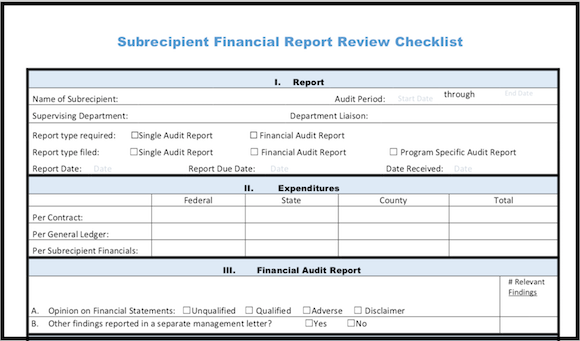|
Having a written code of ethics is an important part of an effective system of internal control. A code of ethics guides how you want employees to behave in situations that may be morally complex. A code of ethics should comprehend the following:
COSO The Committee of Sponsoring Organizations of the Treadway Commission (COSO) develops guidelines for organizations to design and implement systems of internal control over financial reporting and to assess their effectiveness. In 1992 (re-released in 2013), COSO published Internal Control - Integrated Framework, commonly referenced as the “COSO Framework”. The first and most important element of the COSO control framework is the “control environment”. (The other elements of COSO are not contemplated by this discussion). The control environment is the set of standards, processes, and structures that provide the basis for carrying out internal control across the organization. The control environment has a pervasive impact on the overall system of internal control. The control environment comprises the:
California State Law The State of California requires most public officials to file annual conflict of interest statements with the Fair Political Practices Commission. Public officials so required include members of planning commissions, members of the board of supervisors, district attorneys, county counsels, county treasurers, and chief administrative officers of counties; mayors, city managers, city attorneys, city treasurers, chief administrative officers and members of city councils of cities; public officials who manage public investments; and candidates for any of these offices. The conflict of interest statements require filers to list the companies they own or have invested in, real estate owned, and gifts received. [Note: conflict of interest statements required by State law do not qualify as a code of ethics because conflict of interest is only one part of an ethical environment.] Governing Body Tone at the top is ultimately the responsibility of the governing body. The governing body must ensure that ethical objectives are built into the actions and the strategy of the government, and that they are not merely a statement of good intentions. The governing body is responsible for hiring the CEO (City Manager, County Executive, General Manager, Executive Director), approving strategy, monitoring execution of the plan, setting risk appetite, and exercising appropriate oversight regarding risk mitigations. Although each of these responsibilities impact tone at the top, no single decision drives tone at the top more than the selection of the CEO. That selection focuses on competence, character, and chemistry of the candidates, but frequently places too much emphasis on competence and not enough on character. CEO Although the governing body has ultimate responsibility for tone at the top, the CEO is responsible for day-to-day activities that implement and support the governing body’s tone. Establishing the right tone fortifies the organization’s reputation and its relationship with stakeholders. Many governments perform poorly when CEOs fail to prioritize the development of a culture of integrity. Since the CEO is the face of the organization to whom employees look for vision, guidance, and leadership, the CEO must openly and continually communicate their values, using different communication methods. While communicating about values is critical, a CEO’s behavior also tells employees what behavior is rewarded and punished. Unfortunately, many governments under-communicate values by a significant factor. Summary Creating and maintaining the right tone at the top is an essential first step in creating an effective control environment. A written code of ethics is an important element in establishing the tone because it describes in very clear terms the standard of behavior for all employees. Therefore all governments that don’t already have a written code of ethics should develop and adopt one right away. Attached is a simple example of a code of ethics that can be tailored to your government’s circumstances. Sample Code of Ethics Adopted _____, 2023 Purpose The public and stakeholders of the City are entitled to responsible, fair and honest government that operates in an atmosphere of respect and civility. Accordingly, the City Council adopts this code to:
This Code of Ethics applies to all City appointed officials and employees, and members of any of its boards, commissions, committees, and task forces (collectively hereafter, “staff”). Ethics and Conduct To ensure that the City operates in a fair, ethical and accountable manner, staff shall:
Therefore, staff shall conduct themselves in accordance with the following ethical standards:
All current City employees and officials including members of boards, commissions, committees, and task forces, will be given a copy of this Code of Ethics and asked to sign an Acknowledgement of Receipt form (see Attachment). All new employees of the City will be given a copy of the Code of Ethics and asked to sign an Acknowledgement of Receipt form (attached) as part of their new employee orientation. Each new member of a board, committee, or task force will be given a copy of the Code of Ethics and asked to sign an Acknowledgement of Receipt form at their first meeting. Acknowledgment of Receipt forms for officials, employees and members of boards, committees and task forces shall be maintained on file by the City. ATTACHMENT CODE OF ETHICS ACKNOWLEDGMENT OF RECEIPT FORM Name: ________________________________________ Title: _________________________________________ Department/Position: ____________________________ Signature: _____________________________________ Date: _________________________________________
Comments
|
The Government Finance and Accounting BlogYour source for government finance insights, resources, and tools.
SEARCH BLOG:
Meet the AuthorKevin W. Harper is a certified public accountant in California. He has decades of audit and consulting experience, entirely in service to local governments. He is committed to helping government entities improve their internal operations and controls. List of free Tools & Resources
Click here to see our full list of resources (templates, checklists, Excel tools & more) – free for your agency to use. Blog Categories
All
Need a Consultation?Stay in Touch! |



 RSS Feed
RSS Feed